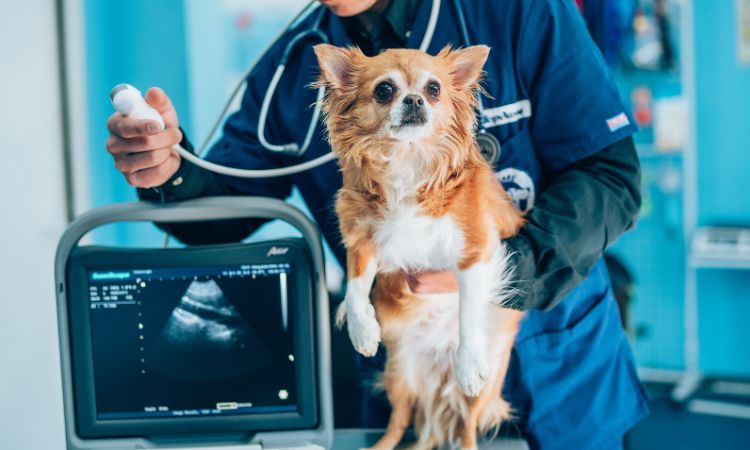Getting pets vaccinated in the US is essential for several reasons. Firstly, it can save your pet from sickness and possible death. Often, diseases in animals also affect humans. This means the health of your family, and you can also be at risk if your pet carries some pathogen that can trigger illness among humans.
Furthermore, laws in the US also require that a pet should be properly vaccinated. Especially if you’re taking the pet on board a flight or to a foreign country, vaccination certificates are compulsory.
At the same time, there’re several other advantages of vaccinating pets too.
Advantages of Pet Vaccines
Once your pet is vaccinated, you have the assurance that certain diseases won’t affect the canine or feline, and it will possibly live a better, longer life. After all, pets become part of the family and household and losing them is extremely sorrowful.
At the same time, unvaccinated pets can spread some diseases. For example, if your pet dog gets infected with Rabies, you might also contract the disease in certain situations. Therefore, the best thing to do is get the pets vaccinated.
Here’re some other benefits of vaccinating pets:
1. Disease Prevention: Vaccines protect pets from potentially life-threatening diseases. By vaccinating your pets, you help prevent illnesses such as rabies, distemper, parvovirus, feline leukaemia, and more. These diseases can be costly to treat and may have serious consequences for your pet’s health.
2. Public Health: Some diseases that pets can contract, such as rabies, can also pose a risk to human health. Vaccinating your pets against rabies not only protects them but also helps prevent the spread of the disease to humans and other animals.
3. Legal Requirements: Vaccination against certain diseases, such as rabies, is required by law in most states. Complying with these regulations ensures the safety of your pet, as well as the health and well-being of your community.
4. Long-Term Cost Savings: Preventive care, including vaccinations, is generally more affordable than treating a serious illness. By investing in routine vaccinations for your pets, you can potentially save money in the long run by avoiding expensive veterinary treatments.
5. Peace of Mind: Vaccinating your pets provides peace of mind, knowing that you have taken important steps to protect their health. It allows your pets to live a longer, healthier, and more comfortable life.
6. Community Immunity: Vaccinating your pets helps contribute to community immunity, also known as herd immunity. When a large portion of the pet population is vaccinated, it reduces the likelihood of disease outbreaks, protecting not only your pets but also vulnerable animals that may not be able to receive vaccinations.
Common Pet Diseases
Vaccinating is in fact a very important thing for all pet owners if they seriously love animals. While your pet might be healthy, it could catch the contagion if another pet in your locality is infected and mingles around.
There are several common pet diseases in the US for which vaccines are available. Some of these diseases include:
1. Rabies: Rabies is a viral disease that affects the central nervous system and is fatal to both animals and humans. Rabies vaccination is required by law in most states in the US to protect public health.
2. Canine Distemper: Canine distemper is a highly contagious viral disease that affects dogs. It can cause respiratory, gastrointestinal, and neurological symptoms. Vaccination against distemper is a core vaccine for dogs.
3. Parvovirus: Canine parvovirus is a highly contagious and potentially life-threatening disease that primarily affects puppies and unvaccinated dogs. Vaccination against parvovirus is essential for canine health.
4. Adenovirus (Infectious Canine Hepatitis): Canine adenovirus can cause infectious canine hepatitis, which affects the liver and other organs in dogs. Vaccination against adenovirus is often combined with distemper and parvovirus vaccines in a single vaccine.
5. Leptospirosis: Leptospirosis is a bacterial infection that can affect dogs, as well as other animals and humans. It can cause kidney damage and other severe symptoms. Vaccination against leptospirosis is recommended in areas where the disease is prevalent.
6. Bordetella (Kennel Cough): Kennel cough is a respiratory infection that can be caused by several pathogens, including Bordetella bronchiseptica. Vaccination against Bordetella is often required or recommended for dogs that frequently interact with other dogs in places like boarding facilities, grooming salons, or dog parks.
7. Feline Panleukopenia (Feline Distemper): Feline panleukopenia, also known as feline distemper, is a highly contagious viral disease that affects cats. Vaccination against feline distemper is a core vaccine for cats.
8. Feline Leukemia: Feline leukaemia virus (FeLV) can lead to various health problems in cats, including anaemia, immune suppression, and increased susceptibility to other infections. Vaccination against feline leukaemia is recommended, especially for cats with outdoor access or living in multi-cat households.
It’s important to note that the specific vaccines recommended may vary based on factors such as the pet’s species, age, lifestyle, and regional considerations.
Consulting with a veterinarian is essential to determine the appropriate vaccination protocol for your pet based on their individual needs and risk factors.
Free Pet Vaccinations Near Me
To find free pet vaccinations near you in the USA, there are a few resources you can consider. Before rushing to the place, it’s best to call and find out. In fact, you could use free resources such as Google Maps to trace one,
1. Local Animal Shelters

Many animal shelters and rescue organizations host free or low-cost vaccination clinics for pets in their communities. Contact your local animal shelter or check their website to inquire about upcoming vaccination events.
Also Read: 27 Free & Cheap Veterinary Care for Low Income Near Me
2. Humane Societies
Humane societies often offer discounted or free vaccination services for pets. Check with your local humane society to see if they have any upcoming vaccination clinics or programs.
3. Veterinary Schools

Veterinary schools sometimes provide low-cost or free vaccinations as part of their educational programs. Contact veterinary schools or colleges in your area to inquire about their services.
4. Nonprofit Organizations

Some nonprofit organizations, such as the ASPCA or local animal welfare groups, may offer free or subsidized pet vaccination programs. Visit their websites or call them to find out if they have any available resources.
5. Community Outreach Programs
Certain community outreach programs, like mobile veterinary clinics or vaccination campaigns, may provide free pet vaccinations in specific areas. Check with your local government offices or community centres to learn about such initiatives.
6. Pet Store Events

Occasionally, pet stores collaborate with local veterinarians to organize free or low-cost vaccination events. Keep an eye on flyers or websites of pet stores in your area to see if they have any upcoming vaccination clinics.
Remember to contact these organizations directly for the most accurate and up-to-date information regarding free pet vaccinations. Additionally, it’s essential to verify the specific vaccines offered and any eligibility requirements or restrictions that may apply.
Also Read:
Types of Pet Vaccines in the USA
The specific vaccines provided for free to pets in the USA may vary depending on the organization or program offering the services. However, there are several core vaccines that are commonly recommended for pets. These include:
1. Rabies Vaccine: Rabies vaccination is crucial for both dogs and cats. It is required by law in most states due to the public health risk associated with this disease.
2. Distemper Vaccine: The distemper vaccine protects against several highly contagious viral diseases, including canine distemper for dogs and feline distemper (panleukopenia) for cats.
3. Parvovirus Vaccine: This vaccine is essential for dogs and helps protect against parvovirus infection, a severe and often fatal disease that primarily affects puppies.
4. Adenovirus Vaccine: For dogs, the adenovirus vaccine is typically combined with the distemper and parvovirus vaccines in a single vaccine known as the DA2PP or DHPP vaccine. It helps protect against infectious canine hepatitis caused by adenovirus.
5. Parainfluenza Vaccine: The parainfluenza vaccine is often included in the DA2PP or DHPP combination vaccine for dogs and helps protect against respiratory infections.
6. Bordetella Vaccine: Also known as the kennel cough vaccine, this is recommended for dogs that frequently interact with other dogs in places like boarding facilities, dog parks, or grooming salons.
7. Feline Leukemia Vaccine: The feline leukaemia vaccine is recommended for cats, especially those that have outdoor access or live in multi-cat households. It helps protect against the feline leukaemia virus, which can lead to various health issues.
Please note that while these are common vaccines, the availability and specific vaccines offered for free may vary depending on the organization, location, and program. It’s best to check with the specific organization or clinic offering free vaccinations to confirm which vaccines they provide.
Cost of Vaccinating Pets in the USA
The cost of vaccinating pets in the USA can vary depending on several factors, including the type of vaccine, the location of the veterinary clinic, and additional services provided. Generally, the cost of pet vaccinations includes the price of the vaccine itself, administration fees, and potentially a consultation fee.
As an approximate range, the cost of core vaccines for dogs (including distemper, parvovirus, adenovirus, and rabies) can range from $20 to $70 per vaccine dose. Typically, multiple doses are required to establish initial immunity, followed by booster shots at regular intervals.
For cats, core vaccines (such as feline distemper and rabies) may cost between $15 and $50 per dose. Like with dogs, multiple doses and booster shots are often necessary.
Optional or non-core vaccines, such as those for feline leukaemia, Bordetella, or canine influenza, may incur additional costs.
It’s worth considering that while vaccination costs are an important consideration, the long-term health benefits and potential cost savings associated with preventing diseases through vaccination outweigh the initial expenses. Additionally, some low-cost vaccination clinics or nonprofit organizations may offer discounted or free vaccination services for pet owners with financial limitations.
Vaccines for Birds and Reptiles
Usually, vaccines for birds and reptiles maintained as pets won’t be available free of cost. That’s because these vaccines are extremely expensive and hence, can’t be given as charity.
However, local zoos, wildlife clubs and other clinics might be able to help you find cheaper vaccines.
Wrap Up
Overall, vaccinating your pets is a responsible and compassionate act that promotes their well-being, protects public health, and contributes to the overall health of the pet population in the US. Consult with your veterinarian to determine the appropriate vaccination schedule and ensure your pets receive the necessary protection.






